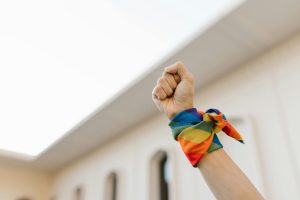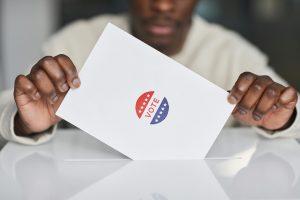Facial Recognition Bans in City Ordinances
As technology continues to advance, the use of facial recognition software has become increasingly prevalent in our daily lives. From unlocking our phones to monitoring security footage, this technology has made its way into various aspects of society. However, its rapid growth has also raised concerns about privacy and potential misuse. This is why some cities have taken a proactive approach in regulating the use of facial recognition technology through city ordinances.
What is Facial Recognition?
Facial recognition is a technology that uses biometric data from an individual’s face to identify them. It works by analyzing facial features, such as the distance between the eyes, shape of the jawline, and other unique facial characteristics, to create a digital template of a person’s face. This template is then compared to a database of images to match and identify the individual.
While the technology has been around for decades, recent advancements in artificial intelligence and machine learning have made it more accurate and widely accessible. It has been used for various purposes, including law enforcement, marketing, and even social media filters. However, its use has also sparked concerns about privacy and potential discriminatory biases.
The Concerns about Facial Recognition
Privacy and Surveillance
One of the primary concerns about facial recognition technology is its potential to violate privacy rights. With the ability to track and identify individuals without their consent, many fear that this technology could lead to constant surveillance and erode our right to anonymity in public spaces.
Moreover, facial recognition technology has been known to have high error rates, especially for individuals with darker skin tones and for women. This bias in the software could result in false identifications and further exacerbate existing racial and gender disparities in the criminal justice system.
Potential Misuse
Another concern is the potential misuse of facial recognition technology. With the ability to identify and track individuals, this technology could be used for purposes beyond its intended use. For example, law enforcement could use it to target and monitor individuals based on their political beliefs or social activities. This raises serious concerns about freedom of expression and potential abuse of power.
City Ordinances on Facial Recognition Bans
In light of these concerns, some cities have taken it upon themselves to regulate the use of facial recognition technology through city ordinances. San Francisco was the first city to ban the use of facial recognition software by government agencies in May 2019. Other cities, including Oakland, Berkeley, and Boston, have followed suit. Most recently, Portland, Oregon, also passed measures to ban the use of facial recognition technology by city agencies and private businesses in public spaces.
The Case of San Francisco
San Francisco’s facial recognition ban came after a study found that facial recognition software is prone to error and could disproportionately affect people of color. The ordinance prohibits city agencies, such as the police department, from using facial recognition technology and requires them to seek approval from the Board of Supervisors before acquiring any surveillance technology.
The Impact and Future of Facial Recognition Bans
While the bans are a step in the right direction towards addressing the concerns about facial recognition technology, their effectiveness remains to be seen. Some opponents argue that the bans could hinder technological advancements and limit the potential benefits of facial recognition in improving public safety.
Moreover, the bans only apply to government agencies and do not regulate the use of facial recognition technology by private companies. This means that individuals are still at risk of being tracked and identified through the use of this technology in private spaces, such as shopping malls and airports.
As technology continues to evolve, it is essential to strike a balance between privacy and safety. While facial recognition technology could play a role in enhancing security, its use must be regulated to protect individuals’ rights and prevent potential misuse. With more cities considering similar bans, it is clear that the discussion surrounding facial recognition technology and its regulation is far from over.
Conclusion
The use of facial recognition technology has raised concerns about privacy, surveillance, and potential misuse. To address these concerns, some cities have implemented bans on the use of this technology by government agencies. However, the effectiveness of these bans and the future of facial recognition remain uncertain. As the debate continues, it is crucial to find a balance between the benefits and potential risks of this technology to protect individuals’ rights and ensure its responsible use.










